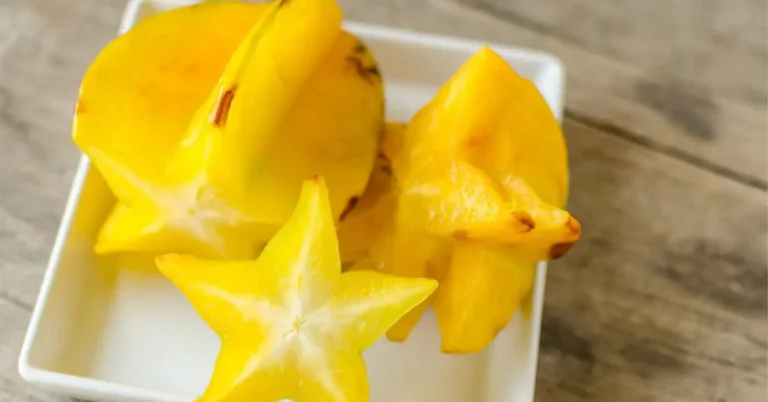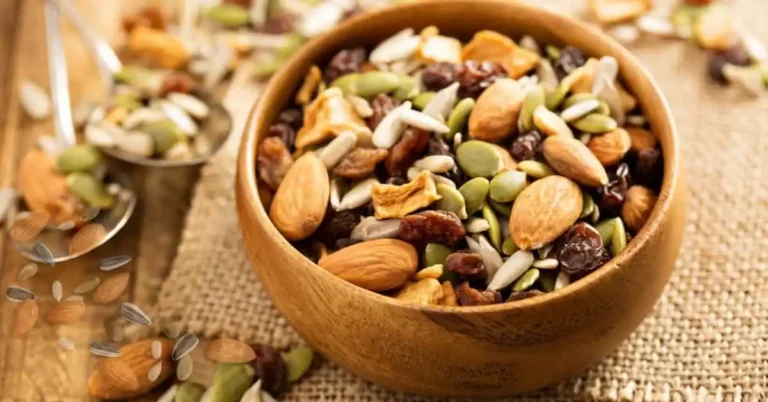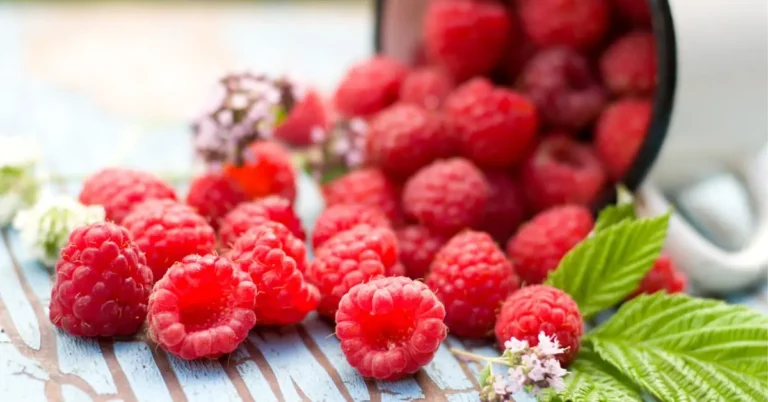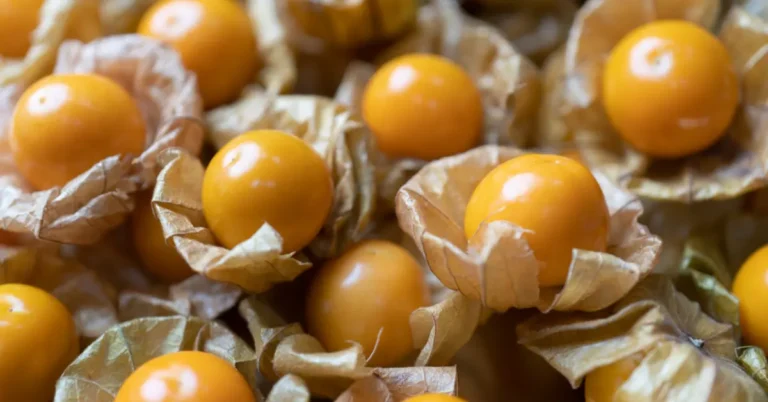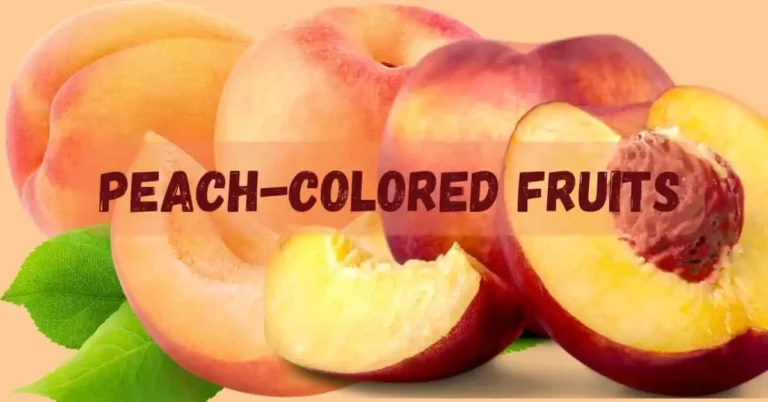Dazzling Fruits That Start With D
Fruits have always been an essential part of a healthy and balanced diet. They are delicious and refreshing and packed with essential vitamins, minerals, and antioxidants crucial for our body’s overall well-being. Fruits, apples, bananas, and oranges are some of the first ones that come to our mind.
However, do you know that countless other fruits are as equally nutritious and delicious and start with the letter “d”? This article will look closer at more than 17 fruits that start with D and learn about their unique features, health benefits, and uses.
17 Fruits That Start With D:
Here’s a list of fruits that start with D.
1. Dragon Fruit
Let’s start with one of the most exotic-sounding fruits on our list, the dragon fruit. Native to South America, dragon fruit has a bright pink exterior with green spike-like protrusions, giving it a unique appearance. It is packed with healthy compounds such as antioxidants, fiber, and vitamin C, making it an excellent choice for a healthy snack. It is also known to have anti-inflammatory properties and can improve gut health.
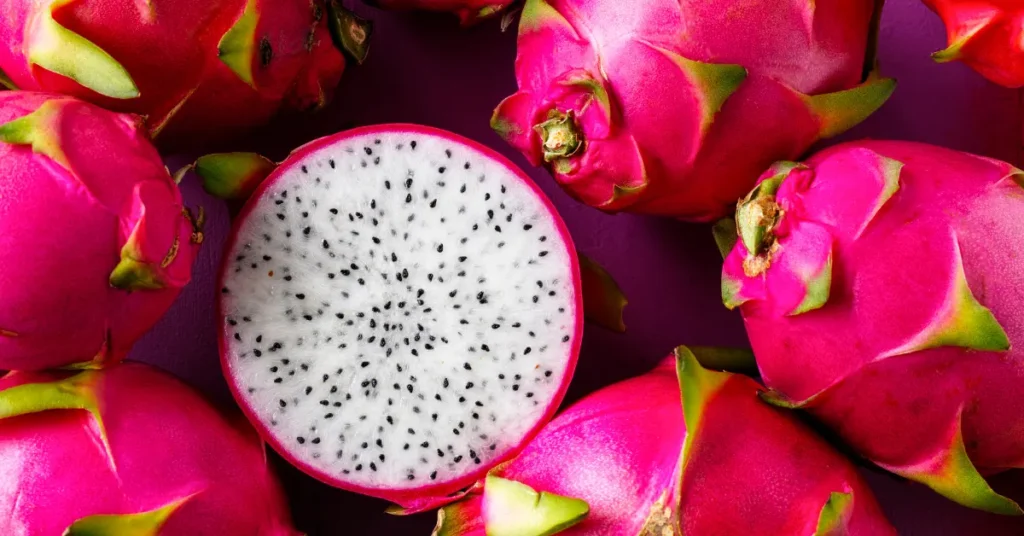
2. Dates
Dates are a popular fruit that is widely grown in the Middle East. They have a sweet, chewy texture and are packed with essential nutrients such as fiber, magnesium, and potassium. They are also rich in antioxidants, effectively reducing the risk of heart disease and other chronic illnesses. Dates are also a great energy source and are often used as a natural sweetener in various desserts.
3. Durian
Durian is a native Southeast Asian fruit known for its strong and pungent smell. It has a large size, and its exterior resembles that of a large, spiky watermelon. Despite its strong smell, durian is a highly nutritious fruit widely used in traditional medicine for its anti-inflammatory and antimicrobial properties. It is also a great source of healthy fats, fiber, and essential vitamins and minerals like iron and vitamin C.
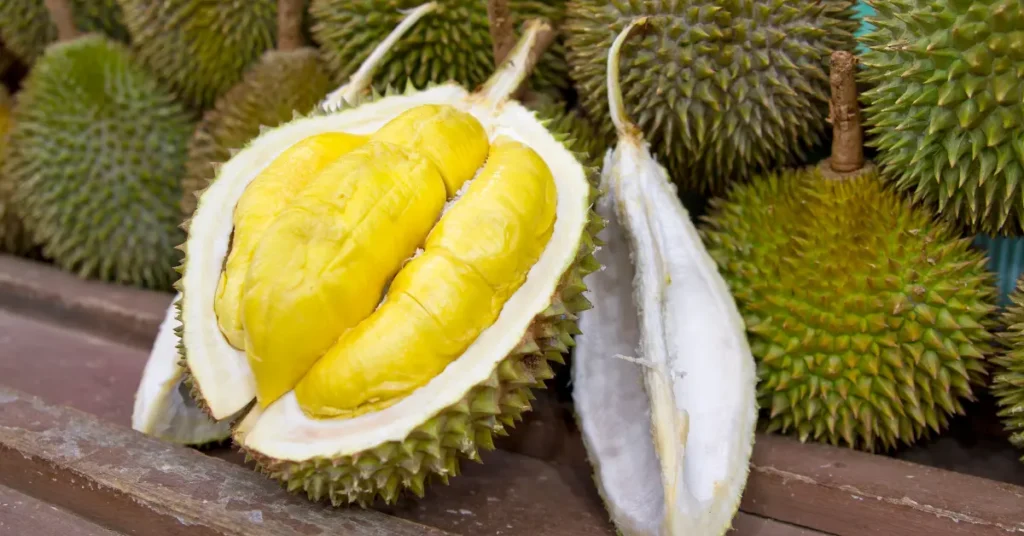
4. Damson Plum
Another fruit that starts with d is the damson plum. Native to Europe and Asia, it is a small, tart fruit with a deep purple exterior. It is a rich source of antioxidants, fiber, and vitamins A and C. The high levels of antioxidants in damson plums help fight against cell damage and reduce the risk of chronic diseases. In contrast, their high fiber content helps improve digestion and prevent constipation.
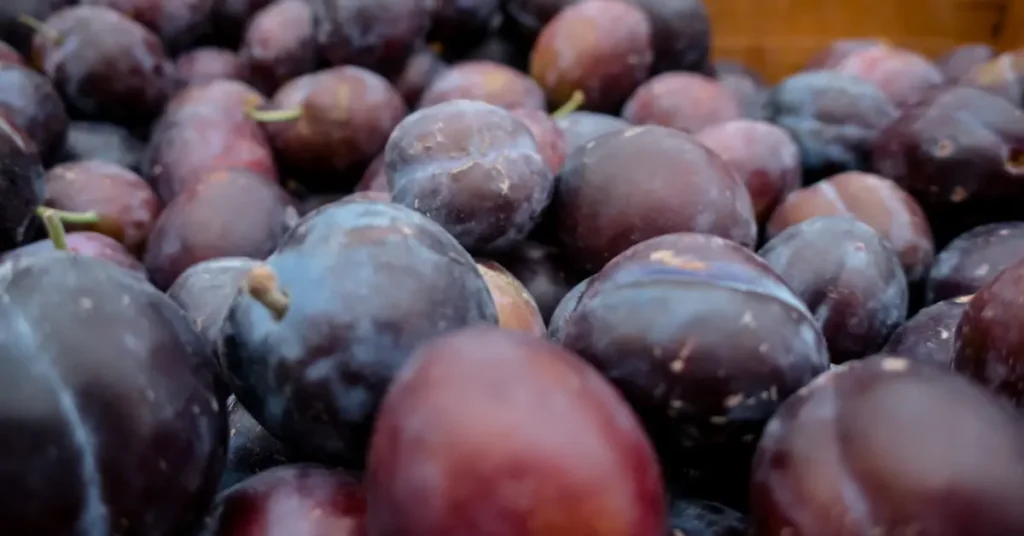
5. Dandelion Greens
Dandelion greens are not exactly a fruit, but they are the leaves of the dandelion plant, which is classified as a vegetable. These greens are highly nutritious, containing high levels of vitamins A, C, and K and iron, calcium, and antioxidants. They taste slightly bitter but can be enjoyed in salads, smoothies, or cooked as a side dish.
6. Desert Lime
As the name suggests, the desert lime is a small, lime-sized fruit that is native to the deserts of Australia. It has a tangy and slightly bitter taste and is used in various dishes, including sauces and jams. It is rich in vitamin C and has been traditionally used to treat scurvy and improve overall immune health.
7. Davidson Plum
The Davidson plum is another fruit that starts with d and is native to Australia. It has dark purple skin and a tangy-sour taste making it a popular choice for jams, sauces, and chutneys. It is also packed with antioxidants, fiber, and vitamin C, making it a great addition to a healthy diet.
8. Duku
Duku, also known as langsat, is a small, round fruit native to Southeast Asia. It has a sweet, juicy flesh and is often compared to the taste of a lychee. It is an excellent source of antioxidants, vitamins, and minerals and is known for its immune-boosting properties.
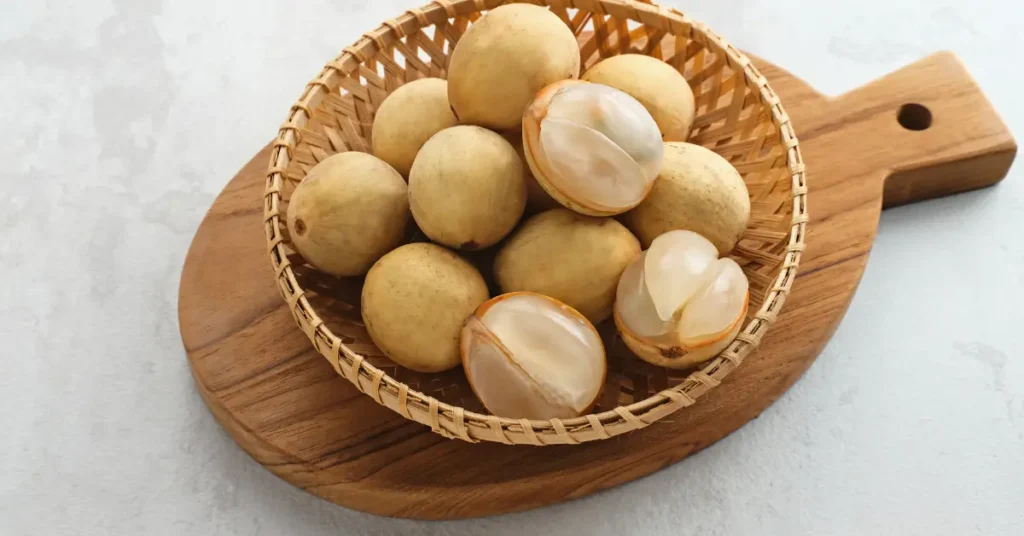
9. Dewberry
Dewberry is a wild fruit that grows on prickly vines and is a close relative of the blackberry. It has a sweet, tangy taste and is rich in antioxidants, manganese, and vitamin C. Dewberries are also a great source of fiber, and their consumption has been linked to improved digestion and heart health.
10. Devil Fruit
One of the more unusual fruits on our list is the devil fruit. It is a sour, acidic fruit grown in tropical countries such as India and the Philippines. It is believed to have medicinal properties and is often used in traditional remedies for its anti-inflammatory and antiviral effects. However, it is not recommended to be eaten raw due to its high acidity.
11. Denver Apples
Denver apples are a type of apple that is named after Denver, Colorado. They are mainly grown in the United States and have a sweet and tart flavor, making them perfect for pies and tarts. They are a good fiber and vitamin C source, and their consumption has been linked to improved heart health and digestion.
12. Dew Fruit
Dew fruit, also known as paper mulberry, is an Asian fruit with a pinkish-red exterior and a white, pulpy flesh. It is loaded with antioxidants, vitamins, and minerals and has been used in traditional medicine to treat colds, coughs, and sore throats. It is also believed to have anti-diabetic effects and can help control blood sugar levels.
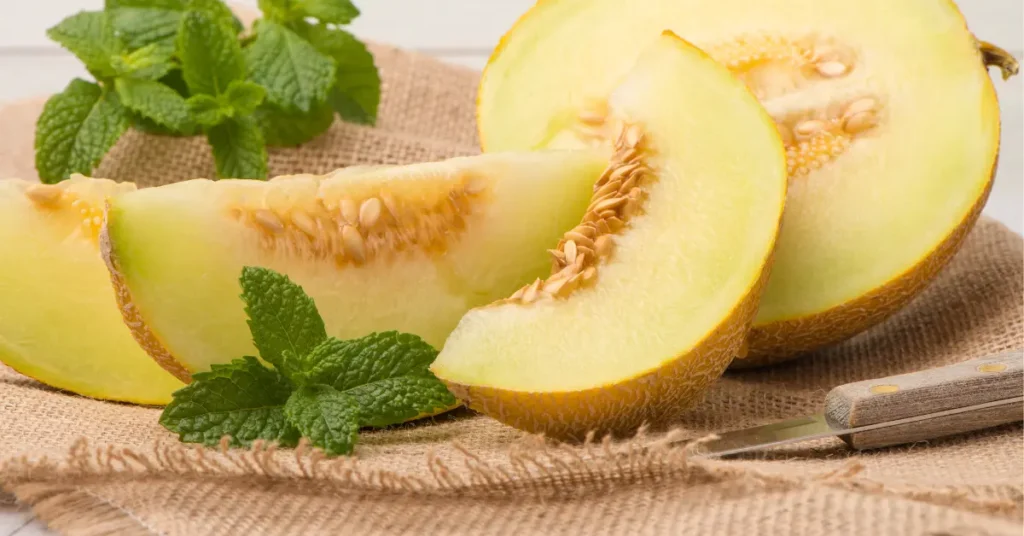
13. Duku Langsat
Duku langsat is another type of langsat with a sweeter and juicier taste. It is a small, round fruit with a waxy, yellow exterior. It is a rich source of antioxidants and vitamins, and its consumption has been linked to improved immune function and reduced risk of chronic diseases.
14. Dwarf Bananas
Dwarf bananas, also known as petite, are a small variety of bananas grown in tropical regions. They taste and texture similar to regular bananas but are much smaller. They are a great potassium, fiber, and vitamin C source, often used in desserts, smoothies, and breakfast dishes.
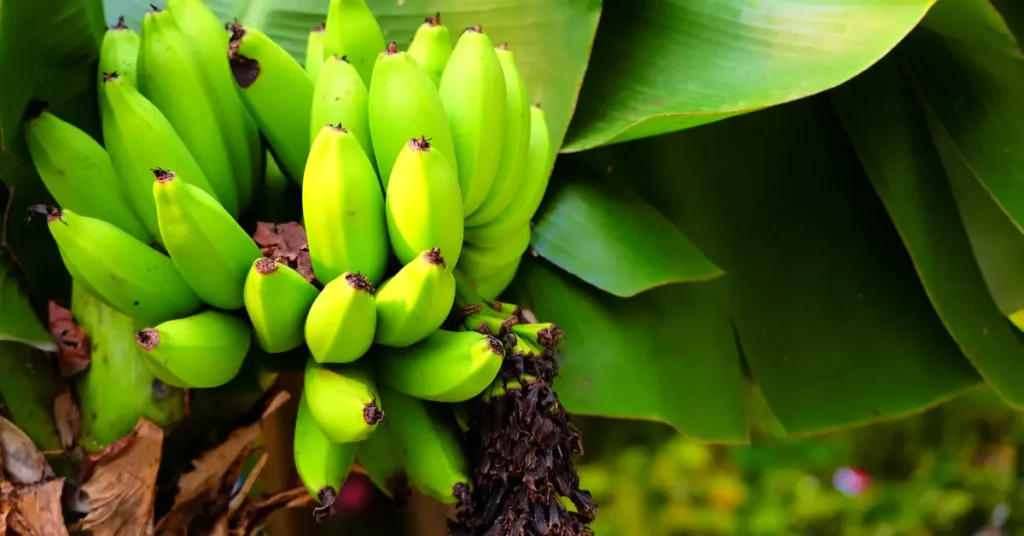
15. Desert Apricot
The desert apricot, or the tamarugo, is a small, round fruit that grows on a desert tree native to the Atacama Desert in Chile. It has a sweet, tangy taste and is a rich source of antioxidants, vitamins, and minerals. It is believed to have anti-inflammatory and anti-cancer properties, and its consumption has been linked to improved immune function.
16. Duku Sumatra
Duku Sumatra, as the name suggests, is a type of Duku fruit grown in Sumatra, Indonesia. It has a pale green exterior and a sweet, juicy flesh. It is rich in antioxidants, vitamins, and minerals and has been traditionally used to treat constipation and improve skin health.
17. Desert Rosella
The desert rosella is a tangy, reddish-purple fruit native to Australia. It is rich in antioxidants, vitamin C, and iron and is known for its immune-boosting effect. It is also believed to have anti-cancer properties and can help manage blood sugar levels.
Conclusion:
From dragon fruit to devil fruit, countless varieties of fruits that start with d. As we have seen, these fruits are packed with essential nutrients and have various health benefits. Including various fruits in your diet can help improve overall health and well-being. So, the next time you go grocery shopping, don’t forget to add some of these delicious and nutritious fruits to your cart.
Frequently Asked Questions (FAQs):
Q: Are there any other fruits that start with D?
A: Yes, there are many other fruits that start with d, including damson plum, dandelion greens, devil fruit, and dwarf bananas.
Q: Where can I find these fruits that start with D?
A: Some of these fruits can be found in your local grocery store, while others may be more exotic and only available in certain regions or specialty stores.
Q: Are these fruits safe for everyone to consume?
A: While these fruits are generally safe for consumption, it is always best to consult a healthcare professional if you have any food allergies or medical conditions.
Q: Can these fruits be eaten independently, or must they be prepared in a specific way?
A: Most of these fruits can be eaten independently, but some may need to be cooked or prepared in a certain way to be enjoyed.
Q: Are these fruits good for weight loss?
A: These fruits are generally low in calories and packed with nutrients, making them an excellent weight-loss choice. However, it is vital to maintain a balanced and healthy diet overall.


